A stack class for characters

/*
C#: The Complete Reference
by Herbert Schildt
Publisher: Osborne/McGraw-Hill (March 8, 2002)
ISBN: 0072134852
*/
// A stack class for characters.
using System;
class Stack {
// these members are private
char[] stck; // holds the stack
int tos; // index of the top of the stack
// Construct an empty Stack given its size.
public Stack(int size) {
stck = new char[size]; // allocate memory for stack
tos = 0;
}
// Construct a Stack from a stack.
public Stack(Stack ob) {
// allocate memory for stack
stck = new char[ob.stck.Length];
// copy elements to new stack
for(int i=0; i < ob.tos; i++)
stck[i] = ob.stck[i];
// set tos for new stack
tos = ob.tos;
}
// Push characters onto the stack.
public void push(char ch) {
if(tos==stck.Length) {
Console.WriteLine(" -- Stack is full.");
return;
}
stck[tos] = ch;
tos++;
}
// Pop a character from the stack.
public char pop() {
if(tos==0) {
Console.WriteLine(" -- Stack is empty.");
return (char) 0;
}
tos--;
return stck[tos];
}
// Return true if the stack is full.
public bool full() {
return tos==stck.Length;
}
// Return true if the stack is empty.
public bool empty() {
return tos==0;
}
// Return total capacity of the stack.
public int capacity() {
return stck.Length;
}
// Return number of objects currently on the stack.
public int getNum() {
return tos;
}
}
// Demonstrate the Stack class.
public class StackDemo1 {
public static void Main() {
Stack stk1 = new Stack(10);
char ch;
int i;
// Put some characters into stk1.
Console.WriteLine("Push A through Z onto stk1.");
for(i=0; !stk1.full(); i++)
stk1.push((char) ('A' + i));
// Create a copy of stck1
Stack stk2 = new Stack(stk1);
// Display the contents of stk1.
Console.Write("Contents of stk1: ");
while( !stk1.empty() ) {
ch = stk1.pop();
Console.Write(ch);
}
Console.WriteLine();
Console.Write("Contents of stk2: ");
while ( !stk2.empty() ) {
ch = stk2.pop();
Console.Write(ch);
}
Console.WriteLine("\n");
}
}
Related examples in the same category
| 1. | Get char type: control, digit, letter, number, punctuation, surrogate, symbol and white space | | 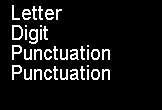 |
| 2. | Determining If A Character Is Within A Specified Range | |  |
| 3. | Is a char in a range: Case Insensitive | |  |
| 4. | Is a char in a range Exclusively | |  |
| 5. | Using Char | | |
| 6. | Escape Characters | | |
| 7. | Encode or decode a message | | |
| 8. | Demonstrate several Char methods | | 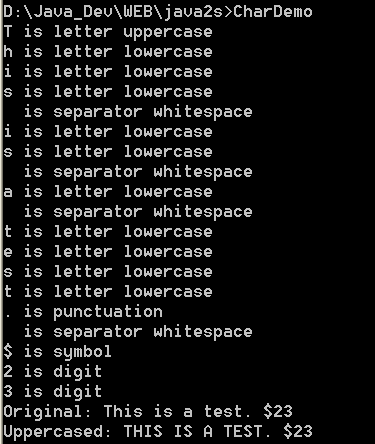 |
| 9. | Demonstrate the ICharQ interface: A character queue interface | | 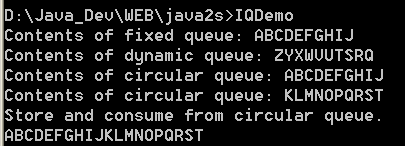 |
| 10. | A set class for characters | | 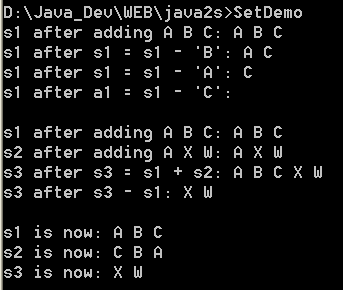 |
| 11. | A queue class for characters | | 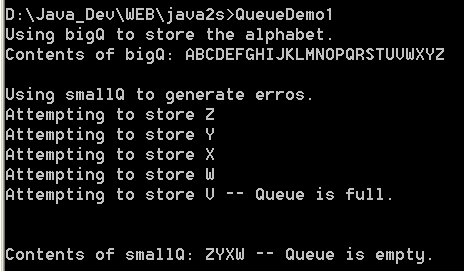 |
| 12. | IsDigit, IsLetter, IsWhiteSpace, IsLetterOrDigit, IsPunctuation | | |
| 13. | Char: Get Unicode Category | | |
| 14. | Char.IsLowSurrogate(), IsHighSurrogate(), IsSurrogatePair() method | | |
| 15. | demonstrates IsSymbol. | | |
| 16. | Buffer for characters | | |
| 17. | Test an input character if it is contained in a character list. | | |
| 18. | Is vowel char | | |
| 19. | Filter letter and digit | | |
| 20. | First Char Upper | | |